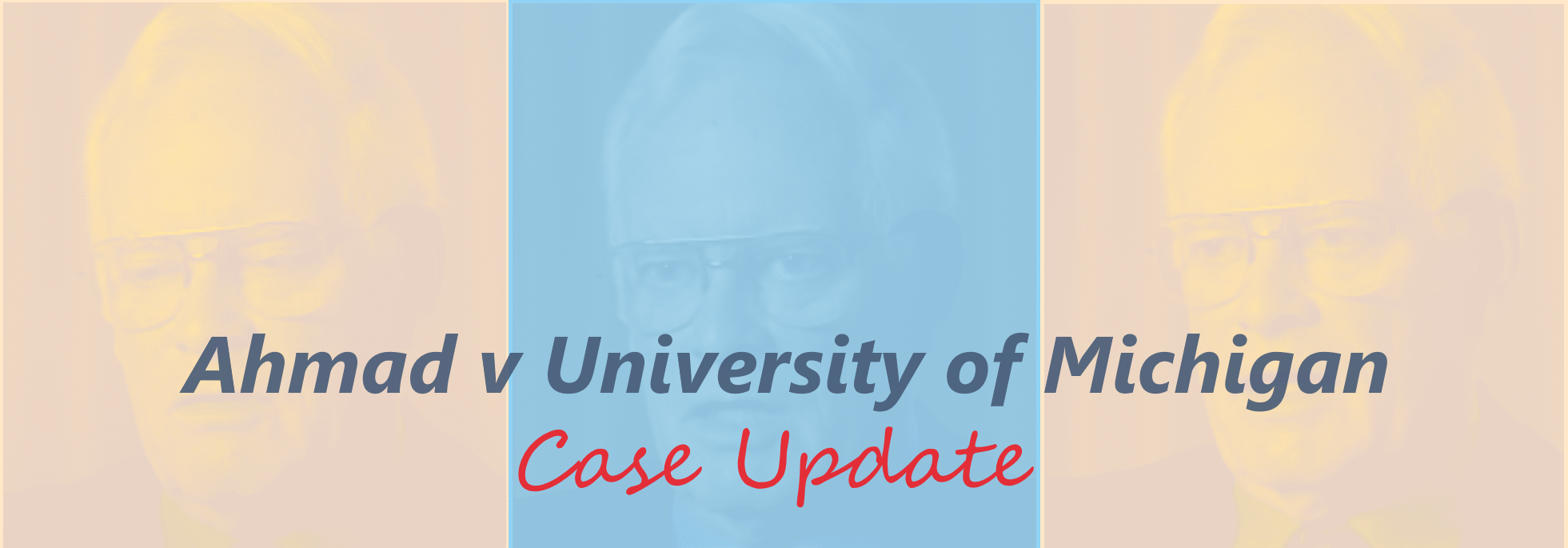Michigan Court Orders UM to Release Tanton Papers
For Immediate Release | Sep 16, 2023
https://olcplc.com/public/media?1694871756

After nearly six years of litigation and a prior appeal to the Michigan Supreme Court, the Michigan Court of Claims ordered the University of Michigan to release the donated advocacy papers of Dr. John Tanton held at the University's Bentley Historical Library.
Outside Legal Counsel represents
immigration attorney Hassan Ahmad, the FOIA requester, who sought access in 2016 to and copies of the records. Under Michigan's Freedom of Information Act, public records must be open for inspection and copying.
Dr. Tanton has been described by the Southern Poverty Law Center as
the racist architect of the modern anti-immigrant movement. Others describe Tanton, a retired ophthalmologist and eye surgeon,
as an insightful advocate against
unending U.S. population growth. He
passed away during the pendency of the case.
In
an opinion and order issued late Friday, the Court of Claims explained that between 1984 and 2010, Dr. Tanton, an "anti-immigration policy advocate," donated 25 boxes of his personal papers to the Bentley Library's collection at U of M. "This case concerns" the opinion provides, "whether the public is entitled to access thousands of pages of documents that Tanton donated [] chronicling his life and work." The sticking point was that Dr. Tanton had desired his papers in eight of the twenty-five boxes to remain closed for 25 years--similar to what happens with presidential records. OLC argued that cannot occur.
A common misunderstanding permeates that governments can, by contract, give away the public's right to access and of copying. This case highlights that error.
The University also argued that the papers, despite being owned, maintained, and use by Bentley Library, should not be disclosed based on what it calls the "gift agreements." It also claimed the Michigan Community Foundation Act, the Library Privacy Act, and FOIA's personal privacy exception also precluded production.
In an earlier decision, the Court of Claims rejected the first three University arguments. In seeking the order of production, OLC instead asserted the University had not offered any "particularized justification" for withholding production of the Tanton papers on the basis of the personal privacy exemption, but rather had sought "a designation
en masse of the Tanton papers as being exempt."
After providing the University numerous opportunities to establish individualized applicability of the "personal privacy exception," including by a legal process known as representative sampling, the Court found that for thousands and thousands of the papers the exception does not legally apply.
While more than 25,000 pages of records have been sought (and for years denied by the University) and now ordered released, the Court directed that the University may "redact from the documents subject to production all healthcare-related information relative to Tanton's patients, friends, family, and correspondents, including the names and addresses of these individuals," but the balance must be produced.
The result is a major victory for government transparency.
"Governments must respect open access laws," states Philip L. Ellison, the OLC attorney representing Ahmad. "The old adage is true: sunshine is the best disinfectant."
Ellison has previously succeeded in prosecuting FOIA violations and obtaining reversals of access denials issued by public bodies, including
recordings of prisoner telephone calls and the infamous
Oakley Pay to Play policing scam.
###


